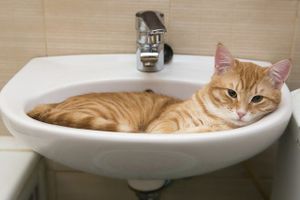Contionary:bí: Difference between revisions
Jump to navigation
Jump to search
Ceolsige18 (talk | contribs) No edit summary |
Ceolsige18 (talk | contribs) No edit summary |
||
| Line 24: | Line 24: | ||
#:: ''The cat is '''in''' the sink'' | #:: ''The cat is '''in''' the sink'' | ||
# denoting a state of the subject | # denoting a state of the subject | ||
#:''Is y '''bí''' | #:''Is y '''bí''' Comene.'' | ||
#:''᛬ᛁᛞ‧ᛦ'''‧ᛒᛁ‧'''ᚳᚮᛘᛖᚾᛖ᛬'' | #:''᛬ᛁᛞ‧ᛦ'''‧ᛒᛁ‧'''ᚳᚮᛘᛖᚾᛖ᛬'' | ||
#::''He is '''in''' a coma.'' | #::''He is '''in''' a coma.'' | ||
Revision as of 19:02, 3 October 2018
Anrish
Alternative forms
Etymology
From Middle Anrish bin, from Old Anrish bin, bien, from Proto-Germanic *bi and *in
Pronunciation
(Anrish) IPA: /bi/
Preposition
bí (runic:‧ᛒᛁ‧)
- (+ common)
- into (allative)
- Tmúð lau bí brókar mír.
- ᛬ᛏᛘᚢᚴ‧ᛚᛆᚢ‧ᛒᛁ‧ᛒᚱᚮᚳᚭᚱ‧ᛘᛁᚱ᛬
- Water got into my boots
- indicating an order or arrangement
- Aunt ǽrr hereð bí tíl!
- ‧᛬ᛆᚢᚾᛏ‧ᛆᚱᚱ‧ᚼᛖᚱᛖᚴ‧ᛒᛁ‧ᛏᛁᛚ᛬‧
- Form a line!
- (+ dative)
- expressing containment, inside, within
- Is lúa bí bætíne.
- ᛬ᛁᛞ‧ᛚᚢᚭ‧ᛒᛁ‧ᛒᛆᛏᛁᛌᚾᛖ᛬
- The cat is in the sink
- denoting a state of the subject
- Is y bí Comene.
- ᛬ᛁᛞ‧ᛦ‧ᛒᛁ‧ᚳᚮᛘᛖᚾᛖ᛬
- He is in a coma.
- indicates means, medium, format, genre, or instrumentality, (of a text, speech etc.) a language, script, tone etc.
- Aunt tilteð bí rúá!
- ‧᛬ᛆᚢᚾᛏ‧ᛏᛁᛚᚴᛖᚴ‧ᛒᛁ‧ᚱᚢᚭᛌ᛬‧
- Write in runes!"
- (+ genitive)
- indicates, connotatively, a place-like form of someone's (or something's) personality, as their psychic and physical characteristics
- Is nǽð ír bin-ǫra.
- ᛬ᛁᛞ‧ᚾᛆᚴ‧ᛆᚱᚭᛘᛖ‧ᛒᛁᛌᛆᚭᚱᚭ᛬
- You have a friend in me.
